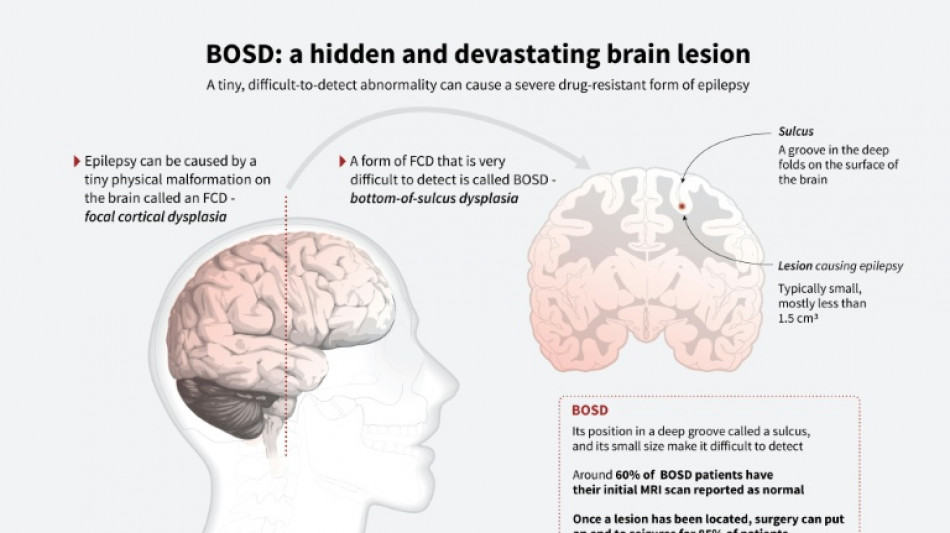
-
 Rams survive Panthers scare to advance in NFL playoffs
Rams survive Panthers scare to advance in NFL playoffs
-
Rallies across US after woman shot and killed by immigration agent

-
 Egypt dump out holders Ivory Coast as Nigeria set up AFCON semi with Morocco
Egypt dump out holders Ivory Coast as Nigeria set up AFCON semi with Morocco
-
Rosenior salutes 'outstanding' start to Chelsea reign

-
 Maduro loyalists stage modest rally as Venezuelan govt courts US
Maduro loyalists stage modest rally as Venezuelan govt courts US
-
Byrne late penalty fires Leinster into Champions Cup last 16 after 'ding-dong' battle

-
 Rosenior makes flying start as Chelsea rout Charlton in FA Cup
Rosenior makes flying start as Chelsea rout Charlton in FA Cup
-
Rallies across US against shooting of woman by immigration agent

-
 Salah closer to AFCON glory as Egypt dethrone champions Ivory Coast
Salah closer to AFCON glory as Egypt dethrone champions Ivory Coast
-
O'Neil ends 'crazy three days' with Strasbourg cup canter
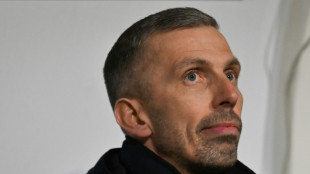
-
 Mitchell leads Cavs over T-Wolves
Mitchell leads Cavs over T-Wolves
-
O'Neil ends 'crazy few days' with Strasbourg cup canter
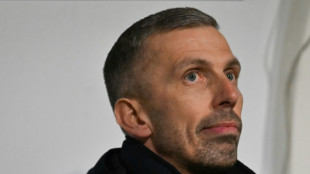
-
 Argentina wildfire burns over 5,500 hectares: governor
Argentina wildfire burns over 5,500 hectares: governor
-
Byrne late penalty fires Leinster into Champions Cup last 16

-
 Roma beat Sassuolo to close in on Serie A leaders Inter
Roma beat Sassuolo to close in on Serie A leaders Inter
-
Villa's FA Cup win at Spurs leaves Frank on the brink

-
 Osimhen focused on Nigeria glory not scoring record
Osimhen focused on Nigeria glory not scoring record
-
Undav calls shots as Stuttgart thump Leverkusen

-
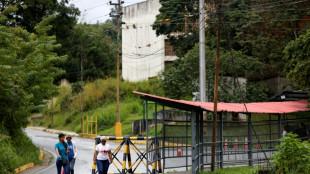 Venezuelan prisoners smile to hear of Maduro's fall
Venezuelan prisoners smile to hear of Maduro's fall
-
Thousands of Irish, French farmers protest EU-Mercosur trade deal

-
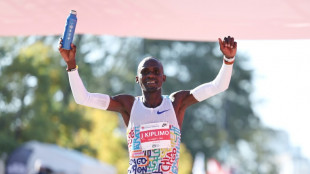 Kiplimo captures third straight world cross country title
Kiplimo captures third straight world cross country title
-
Osimhen leads Nigeria past Algeria into AFCON semi-finals

-
 US urges fresh talks between Syria govt, Kurds after deadly clashes
US urges fresh talks between Syria govt, Kurds after deadly clashes
-
Weekend of US protests after woman killed by immigration agent

-
 Monaco cling on with 10 men to avoid French Cup shock
Monaco cling on with 10 men to avoid French Cup shock
-
Rooney close to tears as brother masterminds FA Cup history
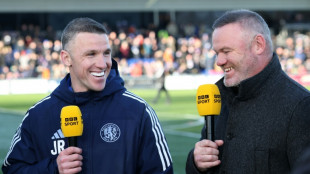
-
 Semenyo scores on Man City debut in 10-goal rout of Exeter
Semenyo scores on Man City debut in 10-goal rout of Exeter
-
Villarreal sink Alaves to stay in La Liga hunt

-
 Bristol, Glasgow reach Champions Cup last 16
Bristol, Glasgow reach Champions Cup last 16
-
Freiburg beat 10-man Hamburg to climb to eighth in the Bundesliga

-
 Venezuela loyalists to rally one week after Maduro's capture
Venezuela loyalists to rally one week after Maduro's capture
-
Syrian authorities transferring Kurdish fighters from Aleppo to northeast

-
 Football: Five memorable FA Cup upsets
Football: Five memorable FA Cup upsets
-
Odermatt warms up for Winter Games with Adelboden giant slalom win

-
 Benin showcases culture with Vodun Days
Benin showcases culture with Vodun Days
-
Iran crackdown fears grow as protests persist

-
 Odermatt wins Adelboden giant slalom for sixth World Cup success of season
Odermatt wins Adelboden giant slalom for sixth World Cup success of season
-
Holders Crystal Palace stunned by Macclesfield in biggest ever FA Cup shock

-
 Odermatt wins Abelboden giant slalom for sixth World Cup success of season
Odermatt wins Abelboden giant slalom for sixth World Cup success of season
-
Poland reach United Cup final despite Swiatek loss to Gauff

-
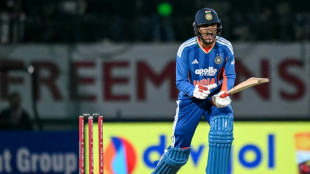 India's Gill calls it 'destiny' after shock T20 World Cup snub
India's Gill calls it 'destiny' after shock T20 World Cup snub
-
'Driven' Vonn storms to 84th World Cup win in Austrian downhill

-
 Syrian army says stopping Aleppo operations, but Kurds deny fighting over
Syrian army says stopping Aleppo operations, but Kurds deny fighting over
-
Thousands of Irish farmers protest EU-Mercosur trade deal

-
 Vonn storms to 84th World Cup win in Austrian downhill
Vonn storms to 84th World Cup win in Austrian downhill
-
Anger over fatal Minneapolis shooting fuels US protests

-
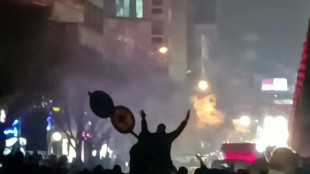 New rallies erupt in Iran as crackdown fears grow
New rallies erupt in Iran as crackdown fears grow
-
Real Madrid not 'kamikaze' with Mbappe health: Alonso

-
 South Africa defends naval drills with Iran, Russia as 'essential'
South Africa defends naval drills with Iran, Russia as 'essential'
-
Alcaraz beats Sinner in sold-out South Korea exhibition match


AI tool helps researchers treat child epilepsy
An artificial intelligence tool that can detect tiny, hard-to-spot brain malformations in children with epilepsy could help patients access life-changing surgery quicker, Australian researchers said on Wednesday.
It is the latest example of how AI, which can crunch vast amounts of data, is changing healthcare by assisting doctors with diagnoses.
Epilepsy has several different causes, and overall around three in 10 cases are down to structural abnormalities in the brain, experts say.
These are often missed on MRI scans -- especially the smallest lesions, sometimes hidden at the bottom of a brain fold.
A team led by Emma Macdonald-Laurs, a paediatric neurologist at the Royal Children's Hospital in Melbourne, trained an AI tool on child brain images to find lesions the size of a blueberry or smaller.
"They're frequently missed and many children are not considered as surgical candidates," Macdonald-Laurs told a briefing ahead of the publication of her team's study in the journal Epilepsia.
"The tool doesn't replace radiologists or epilepsy doctors, but it's like a detective that helps us put the puzzle pieces together quicker so we can offer potentially life-changing surgery," she said.
Of the patients who took part, with conditions known as cortical dysplasia and focal epilepsy, 80 percent had previously had an MRI scan come back as normal.
When the researchers used the AI tool to analyse both MRI and another type of medical scan called a PET, its success rate was 94 percent for one test group and 91 percent for another.
Out of 17 children in the first group, 12 had surgery to remove their brain lesions, and 11 are now seizure-free, said Macdonald-Laurs's team at the Murdoch Children's Research Institute.
"Our next plans are to test this detector in more real-life hospital settings on new undiagnosed patients," she said.
Epilepsy, which causes recurrent seizures, affects about one in 200 children, and about a third of cases are drug-resistent.
"This work is really exciting" as a proof of concept and the results are "really impressive", Konrad Wagstyl, a biomedical computing expert at King's College London (KCL), told AFP.
Similar research published in February by a KCL team using AI on MRI data spotted 64 percent of epilepsy-linked brain lesions that were missed by radiologists.
The Australian researchers used MRI with PET, "but some caveats are that PET is expensive, it's not as widely available as MRI, and there is a dose of radiation like a CT scan or an X-ray associated with it," Wagstyl noted.
T.Ibrahim--SF-PST




